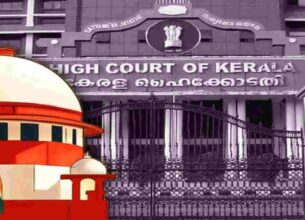SC UPHOLDS CHANGES TO SC/ST ATROCITIES LAW
11, Feb 2020

Prelims level : Rights Issues
Mains level : GS-II Welfare schemes for vulnerable sections of the population by the Centre and States and the performance of these schemes; mechanisms, laws, institutions and Bodies constituted for the protection and betterment of these Vulnerable Sections
Why in News?
- The Supreme Court recently upheld the constitutional validity of the SC/ST Amendment Act, 2018 which rules out anticipatory bail in case of atrocities against SC/STs.
What is Anticipatory Bail?
- Under Indian criminal law, there is a provision for anticipatory bail under Section 438 of the Criminal Procedure Code.
- Law Commission of India in its 41st report recommended incorporating this provision in procedure code.
- This provision allows a person to seek bail in anticipation of an arrest on accusation of having committed a non-bailable offence.
- Anticipatory bail is a direction to release a person on bail, issued even before the person is arrested.
- It is only issued by the Sessions court and High Court.
SCs and the STs (Prevention of Atrocities) Amendment Act, 2018:
- The 2018 amendment act was proposed to nullify the safeguards proposed by the Supreme Court. The amendments proposed were:
- Investigating officer will not require the approval of any authority for the arrest of an accused.
- Preliminary enquiry will not be required for the registration of a First Information Report against a person accused under the Act.
- Persons accused of committing an offence under the Act cannot apply for Anticipatory Bail.
- To avoid any ambiguity the act proposes that these provisions apply despite any judgments or orders of a court that provide otherwise. These amendments to the prevention of atrocities act were questioned in the Supreme Court as ultra vires (beyond the powers).
What are the Supreme Court’s Rulings?
- The SC in Subhash Kashinath Mahajan Vs State of Maharashtra on March 2018 held that no absolute bar against the anti-atrocities law if no prima facie case is made out or if judicial scrutiny reveals the complaint to be prima facie mala fide.
- Now the Parliament introduced the controversial amendment in 2018. It inserted Section 18A in the original Scheduled Castes and Scheduled Tribes (Prevention of Atrocities) Act of 1989.
- Section 18 A reaffirms the original legislative intention that Section 438 CrPC (pre-arrest bail) is not applicable to accused booked under the atrocities law.
- In February 2020 judgement in Prathvi Raj Chouhan Case, the SC has upheld Section 18A and said that the High Courts will have an “inherent power” to grant anticipatory bail in cases in which prima facie an offence under the 1989 law is not made out.
What is the Governments Argument?
- The government had enacted the Amendments, saying the Scheduled Castes and Scheduled Tribes continued to face the same social stigma, poverty and humiliation which they had been subjected to for centuries.
Why such rulings were given by SC?
- The judgment had diluted the original 1989 legislation, saying they were using its provisions to file false criminal complaints against innocent persons.
Need for an hour:
- Anticipatory Bail in this case should be used sparingly and in very exceptional cases. Otherwise Miscarriage of Justice may result and the intention of Parliament to protect SCs and STs will be defeated.








